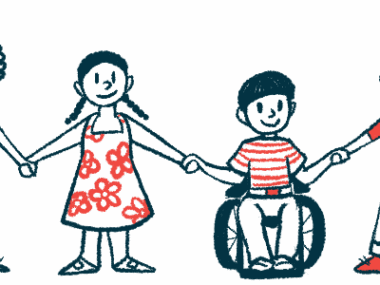Sjögren’s patients on nipocalimab report less pain, dryness in trial
Recruitment ongoing for new placebo-controlled Phase 3 DAFFODIL study
Written by |

Sjögren’s disease patients found significant relief from debilitating symptoms like dryness, pain, and fatigue after treatment with Johnson & Johnson’s investigational antibody, nipocalimab, in a Phase 2 clinical trial.
Full results from the study, dubbed DAHLIAS (NCT04969812), confirmed that nipocalimab treatment, compared to a placebo, not only reduced levels of the self-reactive antibodies that drive Sjögren’s but also substantially eased patients’ hallmark symptoms, including dry eyes and mouth, joint pain, and extreme fatigue.
“These data … add to the growing body of evidence supporting the potential of nipocalimab in Sjögren’s disease,” Leonard L. Dragone, MD, PhD, disease area leader of rheumatology and autoantibody at Johnson & Johnson Innovative Medicine, said in a company press release.
Published results and Phase 3
DAHLIAS’ full results were described in the study “Efficacy and safety of nipocalimab in patients with moderate-to-severe Sjögren’s disease (DAHLIAS): a randomised, phase 2, placebo-controlled, double-blind trial,” which was published in The Lancet.
“By demonstrating clinically meaningful improvements in disease activity and reductions in key biological indicators, nipocalimab may offer an avenue for addressing the autoantibody-driven [mechanisms] of this complex condition,” said Ghaith Noaiseh, MD, the study’s first and co-senior author and a professor at The University of Kansas Medical Center.
The therapy is currently being tested in the placebo-controlled Phase 3 DAFFODIL trial (NCT06741969), which will include up to 600 adults with moderate to severe Sjogren’s. Recruitment is underway in the U.S., Europe, the Middle East, Asia, and South America.
In Sjögren’s, the immune system wrongly attacks the glands responsible for producing tears and saliva, leading to the hallmark symptoms of dry eyes and mouth. The disease can also affect other parts of the body, including the joints, lungs, and nervous system.
“A significant unmet need exists in the treatment of Sjögren’s disease, a condition in which patients, 9 out of 10 of which are women, live with persistent and often debilitating symptoms, yet there are no approved therapies available,” Dragone said.
The abnormal immune responses in Sjögren’s are driven by self-reactive antibodies, particularly anti-Ro and anti-La antibodies that belong to the immunoglobulin G (IgG) antibody class.
Under normal circumstances, a protein called neonatal Fc receptor (FcRn) binds to circulating IgG antibodies to protect them from being destroyed and extend the time they remain active in the bloodstream.
Nipocalimab is designed to block FcRn, accelerating the rate at which Sjögren’s-causing self-reactive antibodies are broken down, and ultimately lowering their levels. The therapy is already approved in the U.S., under the brand name Imaavy, for generalized myasthenia gravis, another autoimmune condition.
The medication received breakthrough therapy and fast track designations in the U.S. for adults with moderate to severe Sjogren’s. These statuses are meant to accelerate nipocalimab’s clinical development and regulatory review.
DAHLIAS trial details and primary results
DAHLIAS assessed nipocalimab’s safety and efficacy against a placebo in 163 adults with moderate to severe, active primary Sjögren’s (when the disease is not associated with another underlying condition).
Participants had a mean age of 48.1 years, and the majority were women (93%) and white (91%). They were randomly assigned to receive an into-the-vein infusion of either one of two nipocalimab doses (5 or 15 mg/kg) or a placebo, once every two weeks for up to about six months.
The trial’s main goal was to assess score changes in the Clinical European League Against Rheumatism Sjogren’s Syndrome Disease Activity Index, a validated measure of Sjogren’s activity in which higher scores indicate more severe disease, after six months.
Results showed that those who received the high nipocalimab dose saw significantly greater score reductions, by 2.65 points, relative to the placebo group. No significant differences were seen between low-dose nipocalimab and the placebo.
The high dose was consistently associated with favorable changes in most secondary outcomes, including trends of greater reductions over the placebo in individual symptoms, including dryness of the mouth, eyes, and/or vagina, fatigue, and joint pain.
That dose also led to a twofold higher proportion of people experiencing an increase of at least 50% in salivary flow relative to those on the placebo (33% vs. 16%).
Nipocalimab was associated with a dose-dependent reduction in blood levels of self-reactive antibodies, including those related to Sjögren’s. Treatment led to a drop in circulating IgG immune complexes and inflammatory markers.
The therapy was generally safe and well tolerated, without major safety concerns observed. Rates of adverse events and serious adverse events were generally similar between the nipocalimab and the placebo groups. The most commonly reported adverse events included headache, allergic reactions, and COVID-19.
Importantly, “immune function was preserved throughout treatment, even among patients who experienced significant reductions in circulating immunoglobulin G (IgG) levels,” the release stated.
“The DAHLIAS Phase 2 study represents an important step forward in the understanding of FcRn inhibition as a potential therapeutic approach in Sjögren’s disease,” Noaiseh said. “The ability of nipocalimab to potentially lower IgG autoantibody levels rapidly and reversibly is consistent with the mechanism of FcRn inhibition and does so without broadly suppressing the immune system.”






